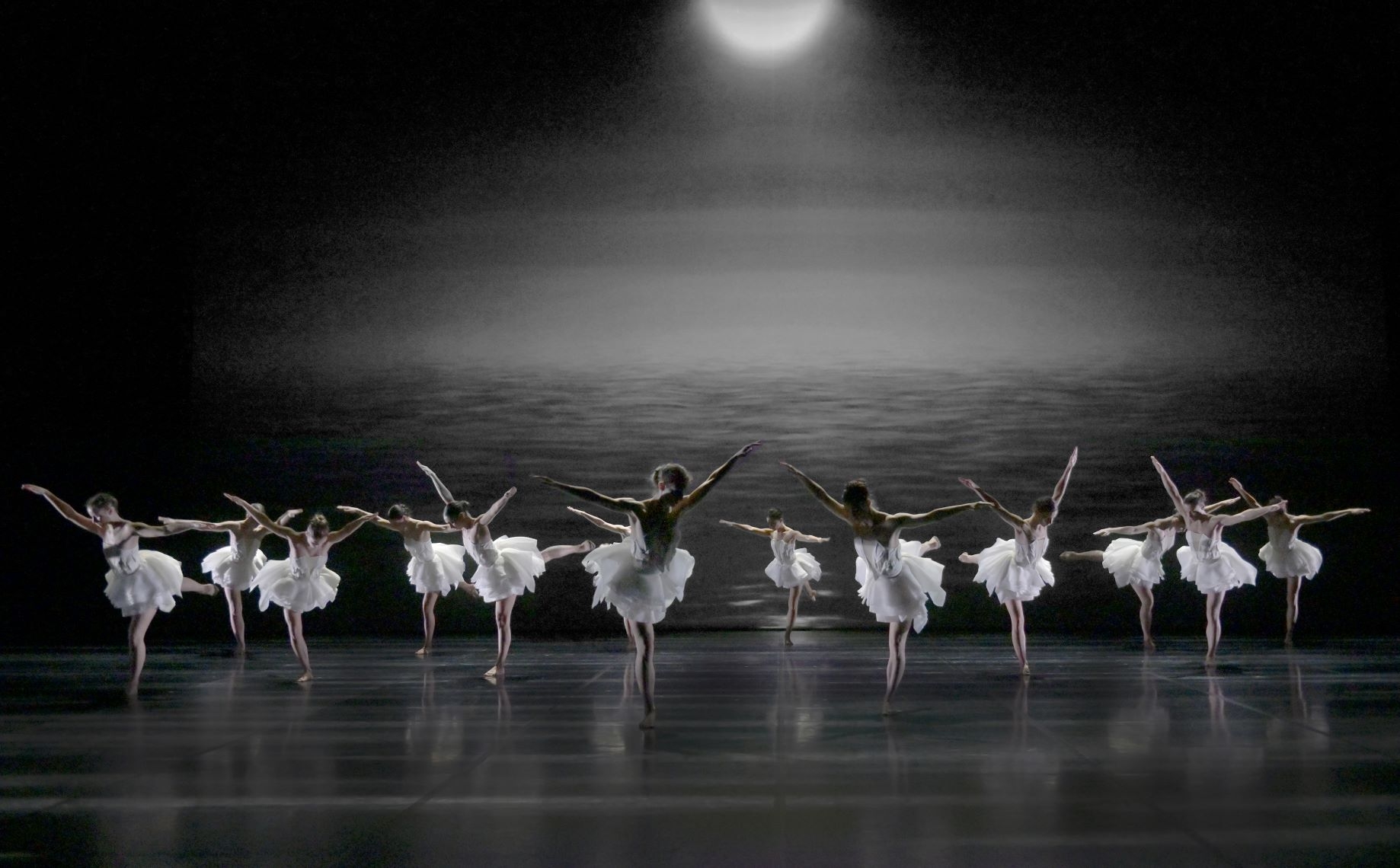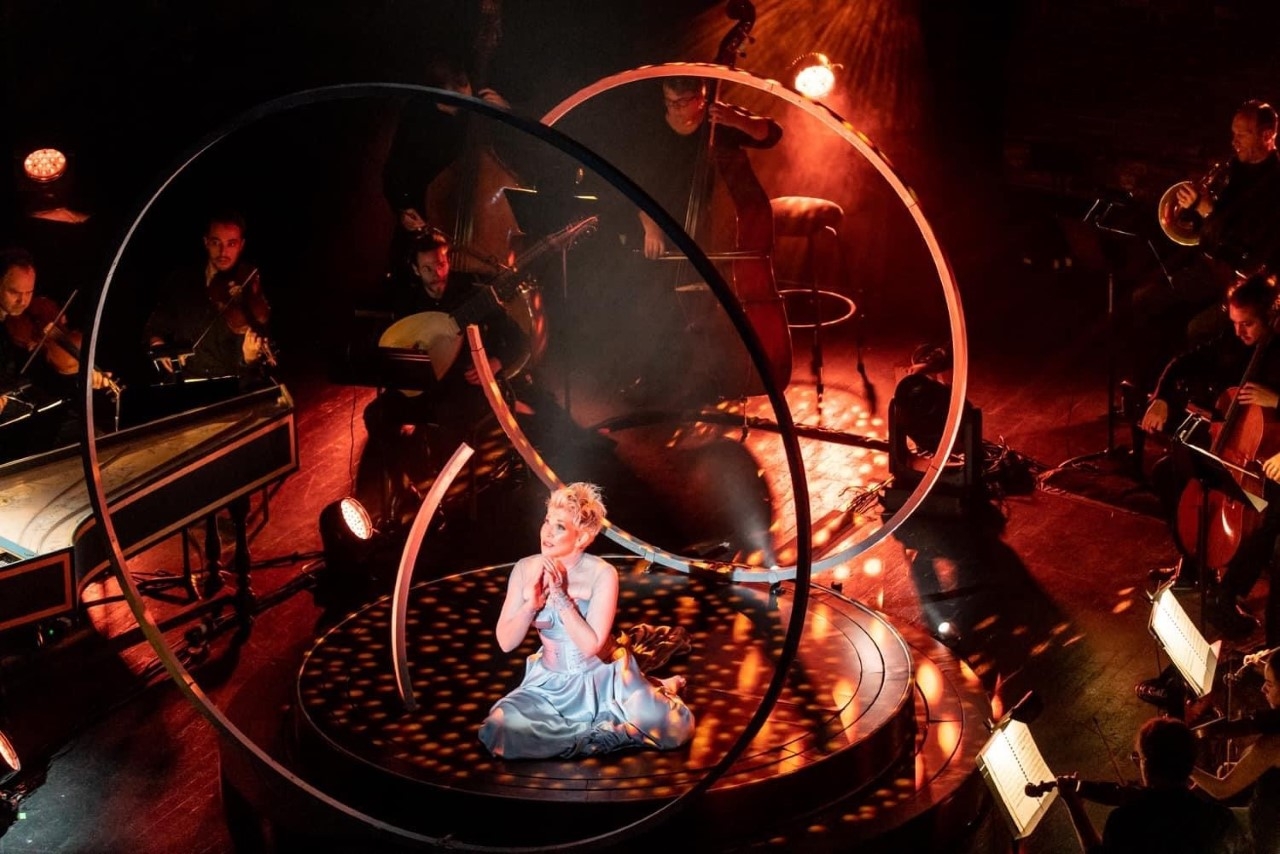
Whether it’s the vision of swans floating on a lake at sunset or the sound of children raising their voices in song, certain experiences transcend ordinary distinctions between natural beauty and artistic creation.
This winter season, UCSB Arts & Lectures (A&L) brings the performing arts into dialogue with the concerns raised by our rapidly changing natural world. In the next few weeks, Santa Barbara audiences will witness “EDEN” and “Swan Lake,” evening-length productions in which mezzo-soprano Joyce DiDonato and choreographer Angelin Preljocaj use music and dance to reveal connections between the achieved harmonies of classical forms and the natural balance necessary to a functioning ecosystem.
According to Miller McCune Executive Director of Arts & Lectures Celesta M. Billeci, “in a time that calls for renewed imagination and ongoing resilience, it’s imperative that Arts & Lectures present the kind of bold and inspiring work that will continue to create hope in our community. We are particularly proud to work with artists like Angelin Preljocaj and Joyce DiDonato, who have found such exciting and innovative ways to bring the power of tradition to meet the urgency of the present moment.”
Among A&L performers slated for the winter quarter, these two stand out for their message that everyone has a stake in combating climate change. Both “EDEN,” by DiDonato and Il Pomo d’Oro (Jan. 24), and “Swan Lake” by Ballet Preljocaj (Feb. 25–26) employ traditional art forms to explore environmental threats and our collective capacity to respond to them.
DiDonato has ventured further from the conventions of an operatic career than virtually any other singer of her stature in modern music. While winning Grammy Awards for best classical vocal performance in 2012, 2016 and 2020 and performing significant roles at the world's top opera houses, including a recent triumph as Virginia Woolf in the Metropolitan Opera’s premiere of “The Hours,” DiDonato has pursued projects that brought music to underserved audiences, including refugee children in Greece and inmates at Sing Sing.
With “EDEN,” DiDonato steps more deeply into an activist role by pairing performances with educational initiatives designed to encourage children to take environmental action where they live. The program features the Baroque orchestra Il Pomo d'Oro led by conductor/violinist Zafira Valova and spans four centuries of music, from Gluck and Handel to Mahler, Copland and Ives. The ambitious selections, including a freshly commissioned work by the British composer Rachel Portman, portray the garden of Eden as a metaphor for Earth — a place of superior beauty with the potential for irreversible loss.

At this stop on DiDonato’s tour, the Music Academy’s children’s chorus Sing! will perform with her onstage. Audiences will leave the show with seeds tucked into their programs as inspiration to plant and cultivate trees for the future.
The great “Swan Lake,” with its archetypal white and black swans and phalanxes of dancers in stiff, gauzy tutus, is, apart perhaps from “The Nutcracker,” the most immediately recognizable of the great story ballets. With its unforgettable Tchaikovsky score and the splendid choreography of Marius Petipa and Lev Ivanov, “Swan Lake” occupies a preeminent place among the canonical works of the art form.
Faced with the challenge of reimagining such an iconic work, Angelin Preljocaj, founding artistic director of the Aix-en-Provence-based company Ballet Preljocaj, embraced an environmental understanding of the conflict at its core. In updating the story to the contemporary world, he has noted that without a healthy, ecologically balanced lake, there can be no swans.
Audiences for the Preljocaj “Swan Lake” — performed at the Granada Theatre — will witness the transformation of this tragic fairytale. Once a story of doomed love between a prince and a supernatural creature, this version is an allegory of industrial greed and human indifference. Preljocaj’s Prince Siegfried is the son of a wealthy real estate developer who wants to build a chemical plant that will destroy the lake. By bringing ecological concerns to a rigidly classical composition, the Preljocaj “Swan Lake" invests the beauty of its dance and music with the dignity and vulnerability of the natural world.
Fans of the original work need not fear, however, as Preljocaj preserves the original choreography’s extraordinary discipline and sophistication even as he addresses present-day issues. Scenes of aristocratic courtly spectacle become corporate cocktail parties and black-tie galas. In the famous pas de deux for Siegfried and Odette, the white swan loses her toe shoes but gains a sense of connection to her beloved that hasn’t been seen before in the long history of “Swan Lake” productions.
For information and tickets to "EDEN" and "Swan Lake," visit artsandlectures.ucsb.edu.
Shelly Leachman
(805) 893-4620
shelly.leachman@ucsb.edu



